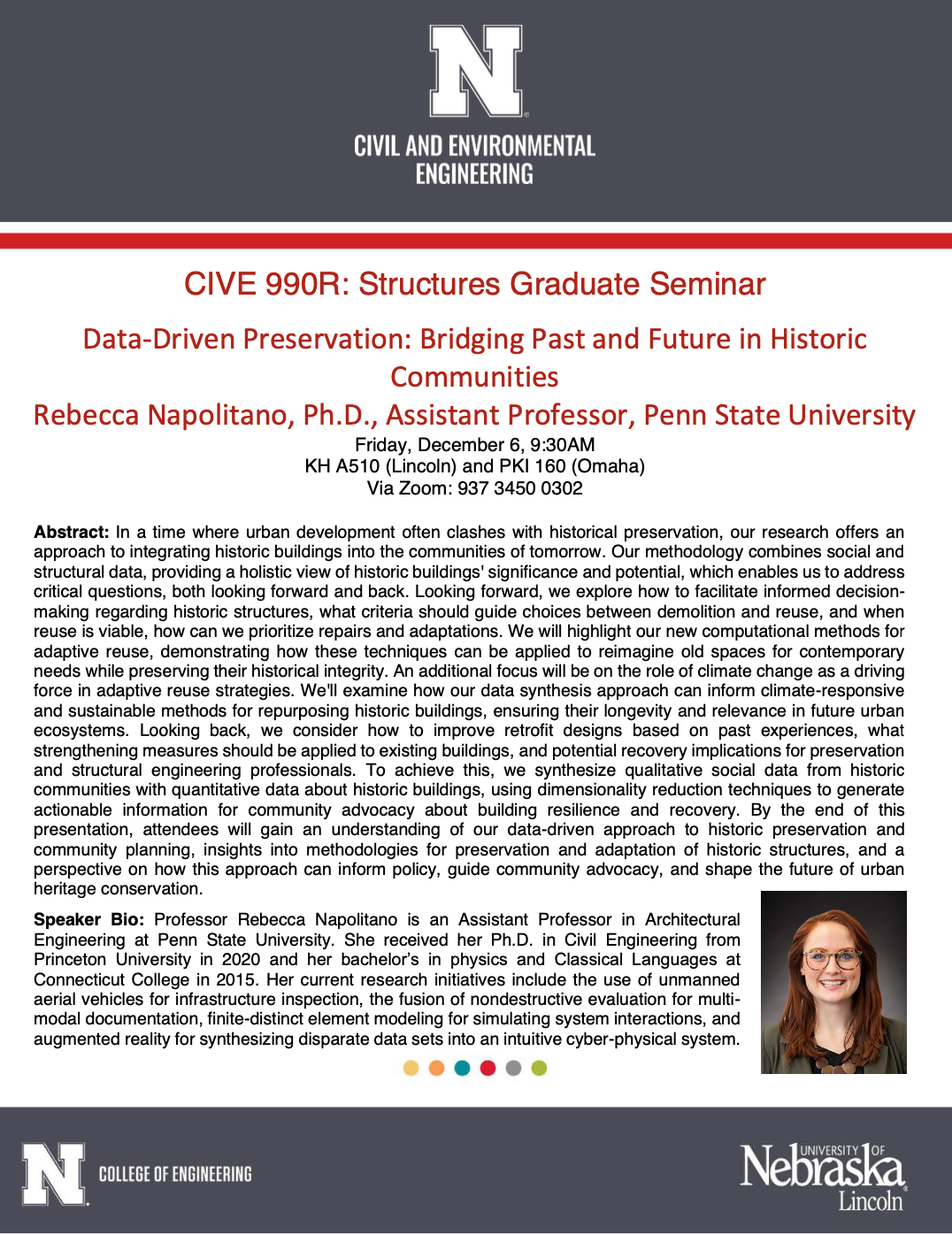
Who: Rebecca Napolitano, Ph.D., Assistant Professor, Penn State University
When: Friday, December 6th, 9:30AM
Where: KH A510 (Lincoln) and PKI 160 (Omaha)
Via Zoom: 937 3450 0302
Title: Data-Driven Preservation: Bridging Past and Future in Historic
Communities
Abstract: In a time where urban development often clashes with historical preservation, our research offers an approach to integrating historic buildings into the communities of tomorrow. Our methodology combines social and structural data, providing a holistic view of historic buildings' significance and potential, which enables us to address critical questions, both looking forward and back. Looking forward, we explore how to facilitate informed decision-making regarding historic structures, what criteria should guide choices between demolition and reuse, and when reuse is viable, how can we prioritize repairs and adaptations. We will highlight our new computational methods for adaptive reuse, demonstrating how these techniques can be applied to reimagine old spaces for contemporary needs while preserving their historical integrity. An additional focus will be on the role of climate change as a driving force in adaptive reuse strategies. We'll examine how our data synthesis approach can inform climate-responsive and sustainable methods for repurposing historic buildings, ensuring their longevity and relevance in future urban ecosystems. Looking back, we consider how to improve retrofit designs based on past experiences, what strengthening measures should be applied to existing buildings, and potential recovery implications for preservation and structural engineering professionals. To achieve this, we synthesize qualitative social data from historic communities with quantitative data about historic buildings, using dimensionality reduction techniques to generate actionable information for community advocacy about building resilience and recovery. By the end of this presentation, attendees will gain an understanding of our data-driven approach to historic preservation and community planning, insights into methodologies for preservation and adaptation of historic structures, and a perspective on how this approach can inform policy, guide community advocacy, and shape the future of urban heritage conservation.